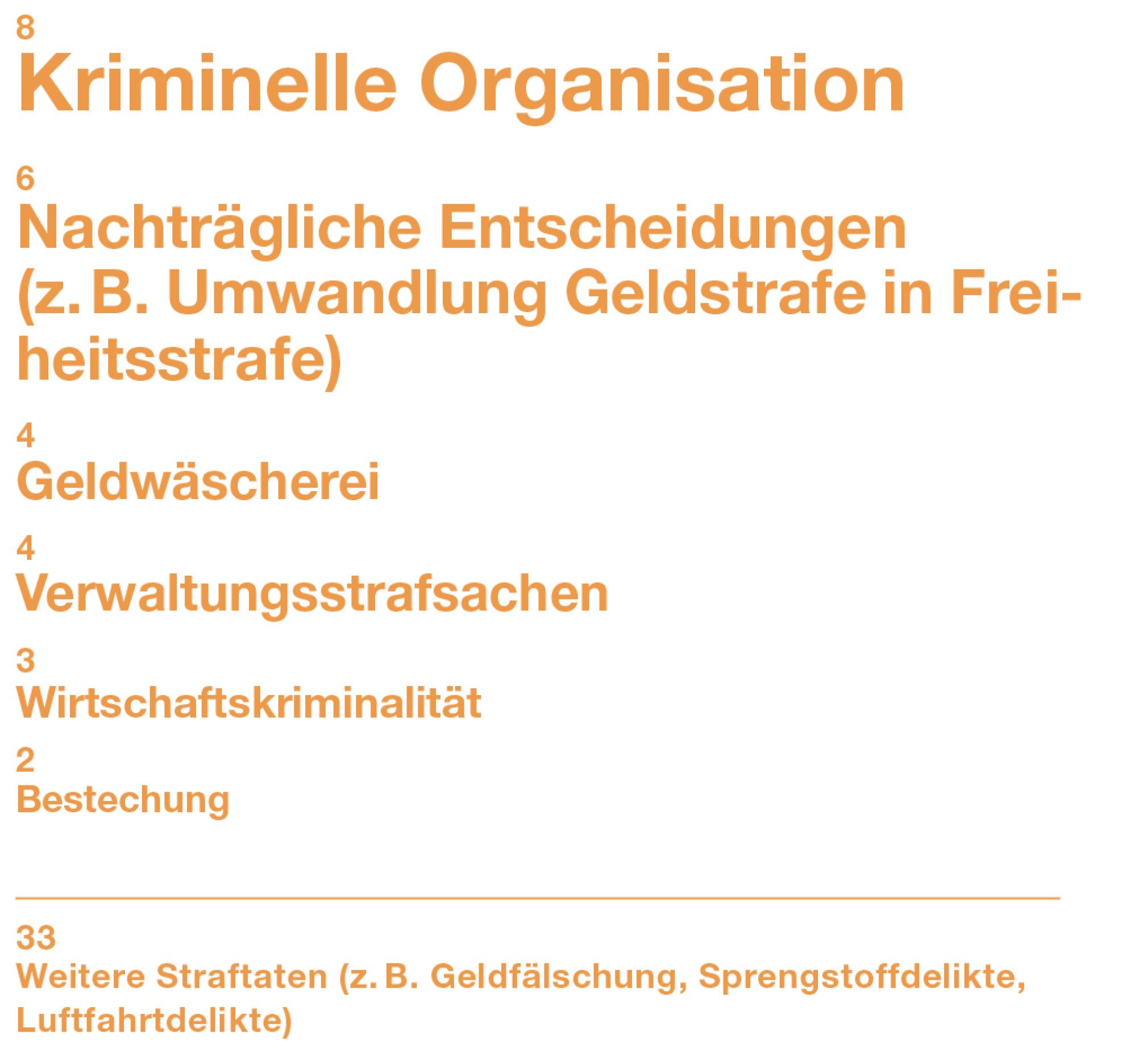The Federal Criminal Court
The Federal Criminal Court is the court of first instance and of appeal for criminal cases of particular interest to the Swiss Confed�eration. It also decides on appeals against the Office of the Attorney General or other prosecution and legal assistance authorities, as well as on conflicts of jurisdiction between cantons or the Confeder�ation and the cantons.
www.bstger.ch
Functions
Most criminal offences are judged by cantonal courts. The Federal Criminal Court rules on criminal cases of particu�lar interest to the Confederation, including criminal of�fences committed by or against federal employees, of�fences involving explosives, counterfeiting, cross-border economic crime, organised crime, corruption and money laundering as well as aviation offences.
The Federal Criminal Court reviews orders issued by federal prosecution authorities and authorities providing international mutual assistance in criminal matters. It also rules on conflicts of jurisdiction between prosecution authorities.
Organisation
The Federal Criminal Court consists of a Criminal Chamber and a Lower and Higher Appeals Chamber. Criminal Cham�ber judgments can be subject to appeal before the Higher Appeals Chamber. The latter was only established in 2019. Most of the Lower and Higher Appeals Chamber judgments can be referred to the Federal Supreme Court.
The Court has 18 tenured and 13 part-time judges. Some 60 employees support them. The Federal Criminal Court’s management bodies are the Administrative Commission and the Plenary Assembly (consisting of all tenured judges).
President: Alberto Fabbri
Particularities
Large procedures
Proceedings before the Federal Criminal Court may in�volve several individuals and be multilingual, making translations necessary. At times special security meas�ures have to be taken for the hearings. The written judg�ment in major proceedings involving several parties is often well over 100 pages long.
International context
Criminal cases often have an international dimension, especially those concerning economic crime and terror�ism. The Lower Appeals Chamber can be required to decide whether Switzerland should extradite a person to another state, or if evidence (mostly bank records) should be handed over to another state.
Criminal Chamber: cases by subject matter in 2020
